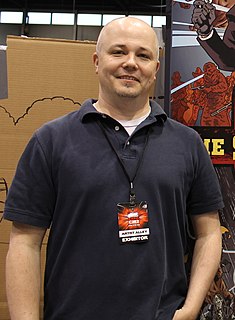A Quote by Jack Kirby
I was being brought up on peasant stories; my mother came from Europe and she'd been a peasant and that was the area where the Frankensteins and the Draculas came from and it was entertainment for the people. Nobody had TV, and that was the way peasants would entertain themselves, by telling these stories.
Related Quotes
My real purpose in telling middle-school students stories was to practice telling stories. And I practiced on the greatest model of storytelling we've got, which is "The Iliad" and "The Odyssey." I told those stories many, many times. And the way I would justify it to the head teacher if he came in or to any parents who complained was, look, I'm telling these great stories because they're part of our cultural heritage. I did believe that.
The ruthless economic exploitation and political oppression of the peasants by the landlord class forced them into numerous uprisings against its rule.... It was the class struggles of the peasants, the peasant uprisings and peasant wars that constituted the real motive force of historical development in Chinese feudal society.
So I found myself telling my own stories. It was strange: as I did it I realised how much we get shaped by our stories. It's like the stories of our lives make us the people we are. If someone had no stories, they wouldn't be human, wouldn't exist. And if my stories had been different I wouldn't be the person I am.
The idea of the book ["The Japanese Lover"] came in a conversation that I had with a friend walking in the streets of New York. We were talking about our mothers, and I was telling her how old my mother was, and she was telling me about her mother. Her mother was Jewish, and she said that she was in a retirement home and that she had had a friend for 40 years that was a Japanese gardener. This person had been very important in my friend's upbringing.
I know where "Blubber" came from. It came from stories that my daughter told me when she came home from fifth grade. There was a kid in the class who was being bullied. We didn't even call it bullying then, that's what's so weird. Victimization in the classroom. The word bully was so out, was so not in use for all those years and now it's back big time.
She [my mother] said that if I listened to her, later I would know what she knew: where true words came from, always from up high, above everything else. And if I didn't listen to her, she said my ear would bend too easily to other people, all saying words that had no lasting meaning, because they came from the bottom of their hearts, where their own desires lived, a place where I could not belong.



































